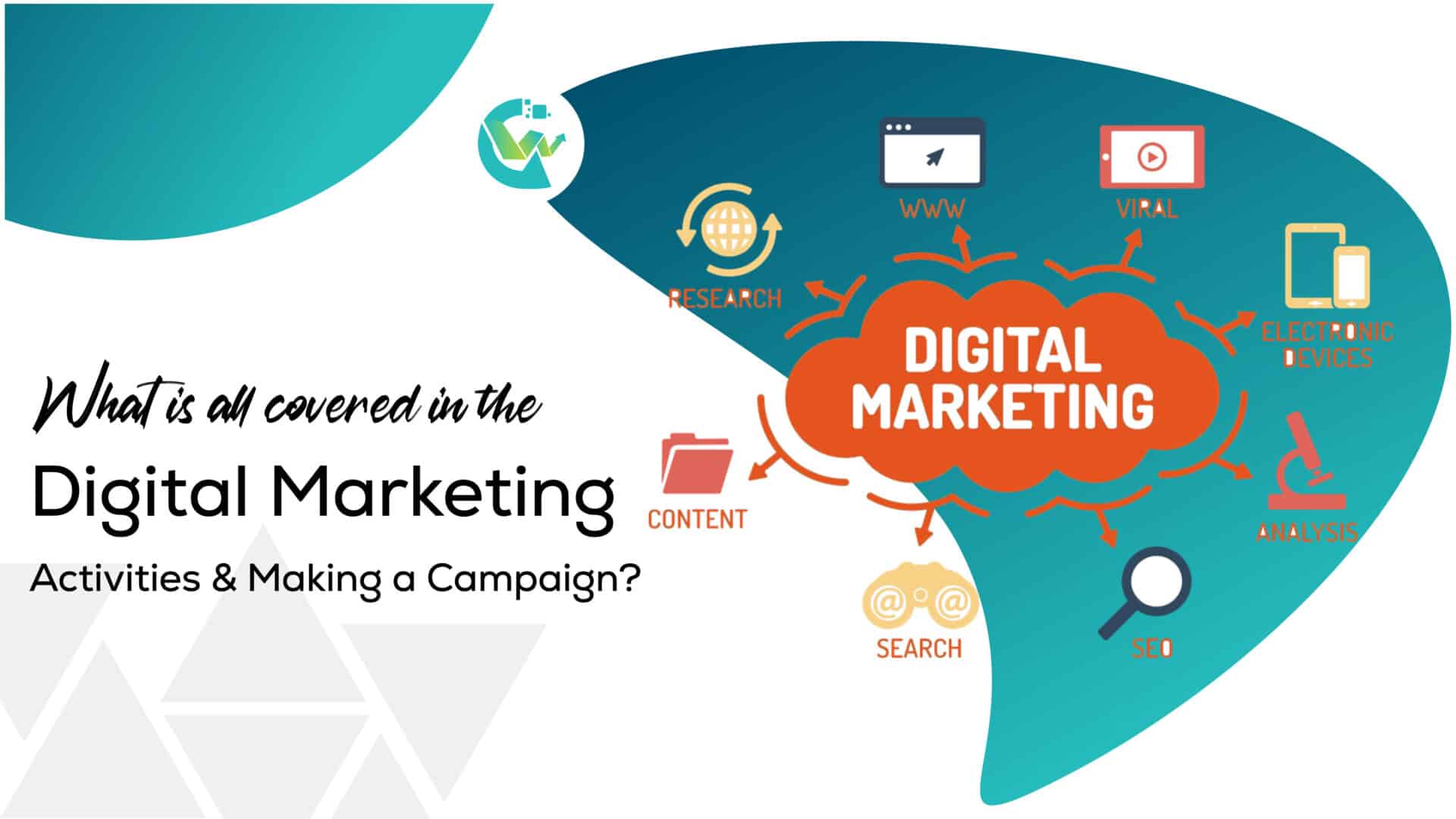What is Digital Marketing?
Digital marketing is the practice of promoting products or services using digital technologies and channels such as search engines, social media, email, mobile apps, websites, and other digital platforms.
Digital Marketing Process
It involves a variety of tactics and techniques such as search engine optimization (SEO), pay-per-click (PPC) advertising, social media marketing, content marketing, email marketing, mobile marketing, and more.
Importance of Digital Marketing
Digital marketing allows businesses to reach and engage with their target audiences more effectively, measure the success of their campaigns, and adjust their strategies in real-time to improve their results.
Requirement of Learning Digital Marketing
- Increase in Demand for Digital Marketing
- Increase in chances to become an entrepreneur
- Handsome Salary if pursuing a job
- Good option for creativity-oriented persons
What should you learn under Digital Marketing?
Preliminary of Digital marketing
- Promoting products or services using digital technologies and channels
- Channels like search engines, social media, email, mobile apps, websites, and other digital platforms:
Introduction to digital marketing process
- Briefs of digital marketing activities.
- Brief history and evolution of digital marketing
Search Engine Optimization (SEO)
- Importance of SEO in digital marketing
- On-page and off-page optimization techniques
- Keyword research and analysis
- Link building strategies
- Tools and metrics for SEO
Search Engine Marketing (SEM)
- Introduction to SEM
- Pay-Per-Click (PPC) advertising
- Google Ads and Bing Ads
- Creating ad campaigns
- Ad targeting and optimization
- Conversion tracking and analysis
Social Media Marketing (SMM)
- Overview of social media marketing
- Different social media platforms
- Creating social media campaigns
- Social media advertising
- Social media analytics and measurement
Email Marketing
- Introduction to email marketing
- Building an email list
- Creating email campaigns
- Email automation and personalization
- Email analytics and measurement
Content Marketing
- Introduction to content marketing
- Content strategy and planning
- Creating engaging content
- Content distribution and promotion
- Content analytics and measurement
Mobile Marketing
- Introduction to mobile marketing
- Mobile website optimization
- Mobile app marketing
- SMS and MMS marketing
- Location-based marketing
- Mobile analytics and measurement
Analytics and Reporting
- Introduction to web analytics
- Setting up and using Google Analytics
- Data collection and analysis
- Measuring campaign performance
- Reporting and visualization
Emerging Trends and Technologies in Digital Marketing
- Introduction to emerging trends
- Artificial Intelligence and Machine Learning
- Voice Search Optimization
- Virtual and Augmented Reality
- Chatbots and Conversational Interfaces
- Blockchain and Cryptocurrency in digital marketing
What is a Digital Marketing Plan?
A digital marketing plan is a strategic document that outlines a company’s goals and objectives for marketing its products or services online.
Read More: Top 10 reasons to learn Digital Marketing
Channelization of a Digital Marketing Plan
It provides a clear roadmap for achieving these goals through digital channels such as search engines, social media, email, and other online platforms.
Ingredients of Digital Marketing Plan
The plan typically includes an analysis of the company’s target market, an assessment of the competition, an overview of the company’s current online presence, and a set of tactics and strategies for achieving the desired outcomes.
Pecuniary Ingredients of Digital Marketing Plan
It also includes a budget and a timeline for implementing the plan, as well as metrics for measuring success and making adjustments as needed.
Structure of digital marketing plan
The structure of a digital marketing plan typically includes the following components:
Executive Summary
A brief summary of the digital marketing plan and its objectives.
Situation Analysis
An analysis of the company’s current digital marketing situation, including an assessment of the competition, target audience, and market trends.
Objectives
Clear and measurable objectives for the digital marketing plan.
Strategy
The overarching approach to achieving the digital marketing objectives, including target audience, positioning, and messaging.
Tactics
The specific digital marketing tactics that will be used to execute the strategy, including channels (e.g. social media, email-marketing, SEO) and specific tactics within each channel.
Budget
A detailed breakdown of the budget allocated for each tactic and channel.
Metrics
The metrics that will be used to measure the success of the digital marketing plan, including KPIs and ROI.
Timeline
A detailed timeline of the execution of the digital marketing plan, including milestones and deadlines.
Risks and Contingencies
An assessment of potential risks to the success of the plan and contingency plans to address them.
Conclusion
The purpose of a digital marketing plan is to provide a clear and structured approach to online marketing, and to ensure that all activities are aligned with the company’s overall business objectives.




















